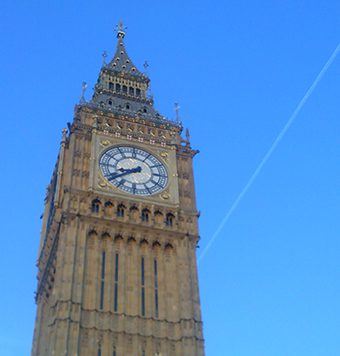Much of the money spent by UK Government during the covid pandemic and lost through fraud is unlikely to be recovered, according to the Committee of Public Accounts of MPs’ annual report. The committee’s chair, the Labour London MP Dame Meg Hillier says the committee of MPs from various political parties has monitored that with ‘increasing frustration’.
As for projects by Government ministers and civil servants, the report complains that Whitehall has ‘a mountain to climb when it comes to securing digital and project management skills’; and that Whitehall has too much ‘optimism bias’ in that Whitehall ‘too often clings to projects which have failed’. As for risk management, the report states: “The military mantra is that no plan survives the battle, but never go into battle without a plan. Put simply we were unprepared. Whitehall is resistant to creating a Chief Risk Officer. We need to see a step change in Whitehall and among politicians about the value for spending to mitigate or be prepared for risk.”
On fraud and error, the committee says that it ‘regularly sees high levels of fraud and error in the work of the Department for Work and Pensions (DWP), HM Revenue and Customs (HMRC), and what was the Department for Business, Energy and Industrial Strategy (BEIS). Government has seen increased levels of fraud and error since Covid-19, as it accepted a greater risk appetite to protect individuals and businesses. Some increase in fraud and error was an inevitable short-term consequence of providing support quickly, but Government is being too slow to recover taxpayer pounds lost. Whitehall departments have an opportunity to do better by the taxpayer by prioritising work to tackle current levels of fraud and error; improving how they measure fraud and error so we can be clearer about the extent of the problem and measures to tackle it; and planning and implementing better fraud and error safeguards’.
HMRC was responsible for delivering the covid-19 employment support schemes to businesses and individuals during the pandemic. In November 2022, the Committee examined these schemes, which cost £97 billion; HMRC estimated to the committee ‘that total fraud and error across the lifetime of these schemes was £4.5 billion, although its estimate is highly uncertain’; and HMRC has forecast that it will recover only a quarter (£1.1 billion) of the losses. Likewise the MPs noted that ‘BEIS made slow progress in addressing fraud on the Bounce Back Loan Scheme’.
The report said that ‘departments across Whitehall are contending with greater levels of fraud and error than before the pandemic’; and that to the Uk more generally fraud ‘is a serious and growing problem’. On criminal justice, the MPs complained that ‘Government is falling short in providing timely access to justice and protecting the public’. The report repeated concerns about whether HM Courts and Tribunal’s (HMCTS) ‘much-delayed court transformation programme’ can deliver the planned benefits.
Under resilience, the report said that ‘fallout from xovid-19 shows the symptoms of a fragile public sector, as Whitehall manages systemic challenges relating to workforce capacity and capability, digital transformation, legacy IT, data, evaluation, and local government finances and audit’. The report also looks at Government by department, starting with the Ministry of Defence (the MoD has ‘a poor track record of managing its major contracts and programmes’) and including HMRC (which is managing a ‘growing tax debt’ and ‘levels of fraud and error’. For the 28-page report in full visit the UK Parliament website.
Background
The Cabinet Office has hailed the Public Sector Fraud Authority (PSFA) as a new service that (in the words of Cabinet Office Minister Baroness Neville-Rolfe) ‘steps up the government’s fraud defences through more rigorous identification of the threats we face and specialist support for public services’. The Cabinet Office has also promised ‘a strengthened procurement regime‘ through a Procurement Bill, which is about to have its report stage in Parliament. A proposed National Security Unit for Procurement, based in the Cabinet Office, will investigate suppliers who may pose a risk to national security, and assess whether companies should be barred from public procurements.
Comment
Rob Otto, Field CTO and Principal Solutions Architect at product firm Ping Identity, said: “Businesses must take proactive measures to effectively manage cybersecurity threats, like fraud, in the long term. Identity proofing can be a powerful tool helping defend against new account fraud, application fraud, and account takeover. Biometrics such as voice or facial recognition are key parts of identity proofing.
“To mitigate risk and improve cyber resilience, businesses should leverage digital identity verification tools to ensure an individual is who they claim to be before granting access. With these safeguards in place, organisations will better protect themselves and ensure their customers have a more seamless and secure digital experience.”










